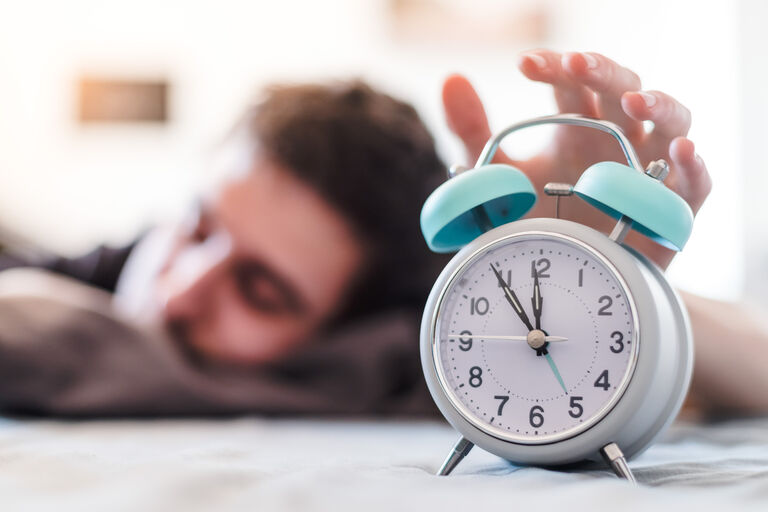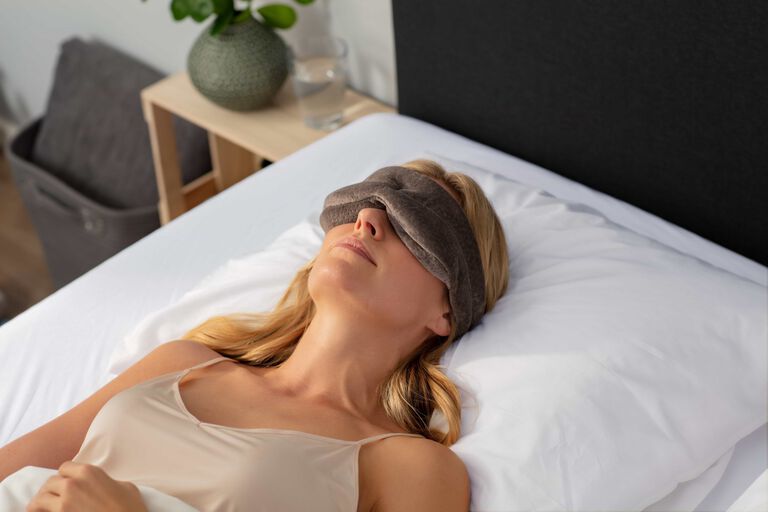HOW DOES DAYLIGHT SAVING TIME AFFECT SLEEP

HOW DOES DAYLIGHT SAVING TIME AFFECT SLEEP?
Daylight Saving Time occurs twice a year, when it disrupts our biological clock by one hour. When Daylight Saving Time starts in the autumn, we get an extra hour of sleep, which can be greatly beneficial. However, most people use the extra hour to stay up longer than usual, instead of taking the opportunity to use the extra hour of sleep and catch up on sleep debt. On the other hand, when Daylight Saving Time ends in spring, we lose an hour of sleep, which takes the body a while to recover.
So, what are the effects this has on our sleep? In this article, TEMPUR® explores Daylight Saving Time, and how we can use these times of year to adjust our sleep patterns.
HOW DAYLIGHT SAVING TIME CHANGES BEHAVIOUR
Depending on your natural sleep cycle, according to the American Academy of Sleep Medicine, it can take approximately five to seven days to adjust to new sleep schedules when Daylight Savings Time occurs. As a result of this, it’s important to be aware of your body’s behaviour, as some people have negative reactions to the time change.
Daylight Saving Time can disrupt sleep habits and natural sleep-wake cycle. This changes the connection between the body’s internal clock and its daily schedule. The sleep habit disruption impairs productivity, alertness and mood. It may also increase the risk of driving while drowsy. The impact can be especially dangerous if you don’t get plenty of sleep during the week leading up to the time change.
The people who are already sleep-deprived or suffer from sleeping conditions can be particularly affected by Daylight Saving Time.
HOW TO ADJUST TO DAYLIGHT SAVING TIME
There are a few ways in which you can help your body effectively adjust to Daylight Savings.
Eating a healthy breakfast first thing in the morning can really help the body to adjust to the change in time. This is because food tells your body it is the start of the day. Light, and especially sunlight, helps to adjust your body clock, which is why going for a walk can really help your body adjust.
Avoiding caffeine, alcohol, heavy meals, electronic devices, and bright lights before bedtime may also help your body adjust to Daylight Saving Time. This is something that should be implemented throughout the year, to help improve your sleep.
Other factors may affect your sleep, especially during the change to Daylight Saving Time. Work stress can heavily affect your sleep, especially if your work worries keep you awake at night. During this period, try and reduce your stress levels to ensure that you’re getting enough sleep.
During the week prior to Daylight Saving Time, alter the time you wake up by 15 minutes every day. This planning could really help those who have difficulty to adjust to changes in their sleep schedule. The gradual change ensures that the body doesn’t receive such a shock when Daylight Saving Time happens.
REFRESH YOUR BEDROOM
With the change of seasons, have a bedroom refresh to ensure that your sleep is at peak comfort levels. This will not only help you adjust to Daylight Saving Time, but also boost your sleep quality in general. Your bedroom refresh could include upgrading your mattress and pillows.
Choose your preferred mattress and pillow feel and pick the perfect pillow for your sleep position. Why not have a browse on the TEMPUR® website to find how you can optimise comfort in your bedroom?




